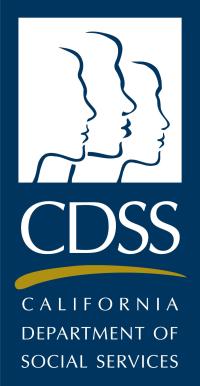In partnership with the California Department of Social Services, the UC Davis Resource Center for Family-Focused Practice actively supports statewide and community efforts to ensure children, youth and their families receive high quality services. We provide statewide, culturally appropriate training and technical assistance to county child welfare and probation departments, behavioral health, tribal partners and community-based organizations–enhancing practices, policies and efforts throughout California.
When the term complex care is used, it is intended to highlight circumstances in which youth have a variety of identified needs across multiple domains that have been unmet, often over long periods of time, by behavioral health, child welfare, probation, education and other systems. As a result, these youth need high intensity, individualized treatment options to better resolve challenges and address their needs. By integrating services from multiple systems and tailoring interventions to the specific needs of each youth, we are better able to provide comprehensive support and facilitate meaningful improvements in their lives.
Explore Our Complex Care Resources
Monthly Complex Care Webinars
ECHO Complex Care Sessions
The ECHO "All Teach All Learn" model is a collaborative learning approach that uses facilitated discussions, case-based learning, and peer-to-peer interactions to lead positive, sustainable change in your communities.
Case Coaching and Technical Assistance
The California Department of Social Services, in partnership with the Resource Center for Family-Focused Practice, is able to provide coaching and/or consultation to agencies and organizations for Wraparound Services, Parent Partner programs and System of Care.
Learn more about Specialized Permanency Services
Every child and youth deserves, and needs, a loving permanent family to help them grow and thrive – and for too many who grow up in the child welfare system, a loving family remains elusive. Children who enter the children’s system of care often suffer from some form of trauma which led to the separation from their family; in addition, the experience of child welfare intervention in and of itself can be a traumatic experience. While most children are reunified with their parents within the first year, many are not. In fact, on average, approximately 20% of children who enter foster care are still in care after 3 years. Further, many children and youth who experience trauma and foster care develop complex care needs, Children and youth for whom permanency is achieved may still have unresolved complex care needs which can escalate and lead to additional system intervention, and children and youth for whom permanency does not happen experience further trauma that comes with not finding a permanent sense of home and belonging.
Specialized Permanency Services, now required by law in the state of California, are designed to help ensure children and youth (including nonminor dependents) achieve a permanent, loving family—a sense of belonging. Specialized permanency services are designed for and with the child to address the child's history of trauma, separation and loss. This is achieved through intensive family finding and engagement, connection and relationship building, therapeutic and behavioral health services, pro-social activities, child-specific resource parent recruitment, and other individualized services and supports.
Upcoming Courses
Courses available in:
2023 Complex Care Resource Guide
Neurosequential Model of Therapeutics (NMT) Learning Collaborative Meetings

About the Collaborative
The NMT Learning Collaborative is designed to facilitate knowledge sharing amongst counties and regions interested in implementing the Neurosequential Model in California.
What is the Neurosequential Model of Therapeutics?
The Neurosequential Model is a a developmentally sensitive approach that integrates core principles of neurodevelopment, developmental psychology, neurosociology and traumatology to inform work with children, families, and the communities in which they live.
Target Audience
System of Care partners at the state and local levels, and those outside the County doing NMT, working to implement NMT, or working alongside a county implementing NMT. This includes representatives from the Departments of Rehabilitation, Education, Health Care Services, Social Services and Developmental Services who are interested in learning more about the Neurosequential Model of Therapeutics (NMT). We also aim to include representatives from County Child Welfare Agencies, Probation, and Behavioral Health.
When
Occurs monthly on the third Thursday from 2:00 p.m. - 4:00 p.m.
How to Get Involved
Simply contact us at resourcecenter@ucdavis.edu with your name, agency and role!
For More Information
For additional information, visit the CDSS Complex Care web pages or email SOCTACALLS@dss.ca.gov

